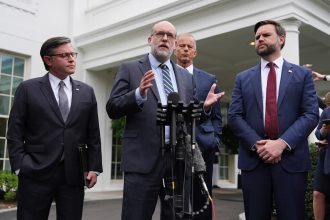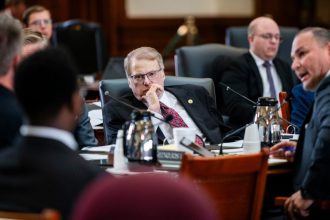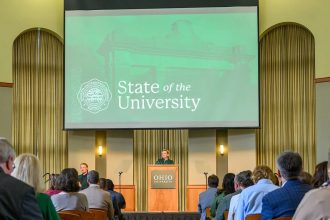North Dakota education officials are establishing an application process for public charter schools after they were authorized by the Legislature earlier this year. (Photo by Unaihuiziphotography/Getty Images)
North Dakota won’t see any charter schools open this year, but state education officials are busy behind the scenes laying the groundwork for next year.
Lawmakers passed Senate Bill 2241 during the 2025 session that authorized public charter schools in North Dakota, leaving South Dakota, Nebraska and Vermont as the only states without a public charter school law.
Supporters of charter schools said they will give families more options and may be able to cater to different learning styles or interests. Bill sponsor Sen. Michelle Axtman, R-Bismarck, gave examples during the legislative session of charter schools around the country specializing in health care or building trades, dual language or STEM-education models.
“It expands education opportunities and provides a new way to promote innovation and offer more choice to families,” North Dakota Superintendent Kirsten Baesler said in an Aug. 5 statement.
Now the state Department of Public Instruction is developing an application process and drafting rules to license the new schools. A public hearing is expected before the end of the year.
The department has received some inquiries from teachers and organizations interested in establishing a charter school, said Arlene Wolf, director of school approvals and opportunity.
Charter schools will not be able to charge tuition or offer religious instruction, according to the new law. They will also not be able to discriminate based on ethnicity, national origin, religion, gender or income level, among other criteria.
The schools will receive state funding that follows the student. The funding is based on the state funding average, which is about $8,360 per student for 2025-26, according to the department. Charter schools also will be able to receive federal grants and private donations.
The law allows existing schools to become a public charter school if a majority of the parents of students support the change.
The Department of Public Instruction will be the sole authorizing authority for public charter schools in North Dakota, Wolf said. North Dakota plans to apply for federal grants to assist with establishing the new schools, she said.
“We want to make sure we are building the right process to ensure success,” Wolf said. “It just takes a little bit of time, but we’re certainly trying to do it right. Luckily, we had a lot of states that were ahead of us.”
State education officials have learned from other states that having a detailed application on the front end can save time during the permitting process, Wolf said. They’ve also learned the importance of having an in-person interview during a public meeting as part of the approval process, she said.
“What you really want to know is that they have the systems in place so when they open their doors, they are ready to go,” she said.
Charter schools will be held to the same standards as the state’s other public schools, Wolf said, and could face similar improvement guidelines if student performance falls into the bottom 10% of performing schools in the state.
“We don’t want to make anything difficult, but we definitely want to ensure that students are increasing in their outcomes,” Wolf said.
Nick Archuleta, president of North Dakota United, an educator and public employee union, said it will be important that the rules that govern a school’s performance are the same for charter schools as they are for public schools.
ND United and other education organizations across the state will be monitoring the department’s rules process, he said.
“We’re also very interested to see what the governing boards of these charter schools end up looking like,” Archuleta said. “What qualifications should a person have for that sort of position? What level of professionalism is going to be expected of that governing body?”
He said the organization is worried that charter schools will be competing for funding against the public education system.
“The pie is only so big,” he said.
Idaho, which established public charter schools in 1998, initially had opposition to the new schools, but now they have been embraced in the state, said Terry Ryan, CEO of BLUUM, an Idaho-based public charter school support organization.
Similar to North Dakota, opponents in Idaho warned that charter schools would mean the “death” of rural school districts, Ryan said. But that hasn’t been the case, he said.
Idaho now has 75 charter schools, representing about 10% of the total student population, Ryan said.
The Idaho School Boards Association has become less hostile toward charter schools, Ryan said, even including charter school-specific learning sessions at its annual convention.
“I think we’ve evolved from this is ‘us against them’ to, really, we’re all in this together and the ultimate goal is to better serve our families and our children,” he said.
North Dakota Monitor reporter Michael Achterling can be reached at machterling@northdakotamonitor.com.
SUPPORT: YOU MAKE OUR WORK POSSIBLE
SUBSCRIBE: GET THE MORNING HEADLINES DELIVERED TO YOUR INBOX









